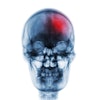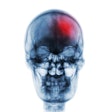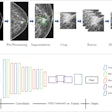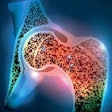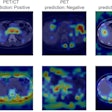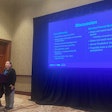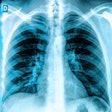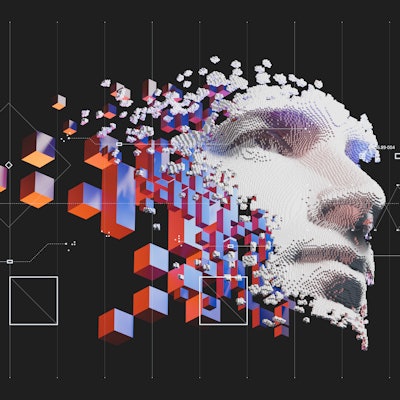
An international survey of over 1,000 radiologists and radiology residents has reported divergent opinions on artificial intelligence (AI). Although almost half had an open and proactive attitude about AI, nearly 40% feared being replaced by the technology.
 Dr. Merel Huisman, PhD.
Dr. Merel Huisman, PhD.A multinational team of researchers led by first author Dr. Merel Huisman, PhD, of University Medical Center Utrecht in the Netherlands and senior author Dr. Martin Willemink, PhD, of Stanford University in Stanford, CA, disseminated a survey on AI to the global radiology community in 2019.
Of the radiology residents and radiologists who responded, those who had limited AI-specific knowledge were more likely to fear AI. However, those with intermediate-to-advanced knowledge of AI were more likely to view the technology positively.
"These findings underline that AI should be incorporated into radiology training curricula and postacademic training," the authors wrote in an article published online March 20 in European Radiology.
With the goal of ascertaining the knowledge level of radiologists and radiology residents toward AI, the researchers distributed a 39-question survey through several radiological societies in Europe, on author networks, and in social media. The survey was available between April and June 2019.
 Dr. Martin Willemink, PhD.
Dr. Martin Willemink, PhD.The researchers received 1,086 responses for a 3.9% response rate. Of the respondents, 867 (83%) worked in European countries, and 109 (10%) were from non-European countries -- including 64 respondents (6%) from North America. The participants included 692 radiologists with a median of 12 years of experience (range, 0-44), as well as 322 residents and 27 fellows.
Of the respondents, 401 (38%) feared replacement by AI, while 501 (48%) appeared to have an open and proactive attitude toward AI. The researchers then performed multivariable logistic regression analysis to identify independent predictors for each viewpoint. Odds ratios were adjusted for region, source population, working in academia, being a radiology resident, radiologist subspecialty, and fear of replacement.
The researchers found that respondents with just a basic knowledge of AI were more likely to associate fear with AI, a trend that declined as knowledge of AI went up. On the other hand, those with basic AI knowledge were less likely to have a positive attitude toward the technology than those with intermediate or advanced knowledge.
| Impact of AI knowledge on attitude toward AI | |||
| Basic AI knowledge | Intermediate AI knowledge | Advanced AI knowledge | |
| Association with fear of AI | OR = 1.56 | OR = 0.40 | OR = 0.43 |
| Association with a positive attitude toward AI | OR = 0.58 | OR = 11.65 | OR = 17.65 |
Other predictors of a positive attitude toward AI included the following:
- Having only heard of AI: adjusted OR = 4.78
- Male gender: adjusted OR = 1.77
- Professional social media use: adjusted OR = 1.64
- Having a scientific background: adjusted OR = 1.63
- Knowledge of information/statistics: adjusted OR = 1.48
- Age (per 10-year interval): adjusted OR = 0.78
"This indicates that radiology residents and radiologists inherently have a positive attitude toward the recent technological development of artificial intelligence, especially those who still have most of their career ahead of them, and those who are naturally more inclined to be interested in science and/or technology," the authors wrote.
Meanwhile, fear toward AI was not associated with age, gender, region, current position, working in academia, AI-specific knowledge, or subspecialty, according to the authors.
The researchers noted that North America was underrepresented in the survey results, potentially due to the tendency of their societies to not participate in third-party initiatives.
"Also, South America, Asia, and Africa were not systematically included in this survey through official channels," they wrote. "Therefore, the results should be interpreted as a reflection of the opinion of the radiology community in western society, mainly Europe."

